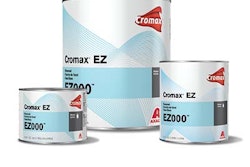
Foreign Affairs Minister Chrystia Freeland introduced the largest retaliatory effort Canada has undertaken on trade in the post-war era.
July 3, 2018
Jeff Sanford
Toronto, Ontario — July 3, 2018 — This past Sunday was a big day for Foreign Affairs Minister Chrystia Freeland. The minister oversaw the introduction of the largest retaliatory effort Canada has undertaken on trade in the post-war era. That the new tariffs were instituted July 1st, Canada Day, was either a point of national pride, or darkly prophetic.
Over the past few decades the global economy has only known a general trend toward more open trade and looser national barriers in terms of tariffs on products and commodities. This long march toward a more open global trade network ushered in the era of globalization that took off in the late-1980s and facilitated a golden era of trade across national borers through the 1990s and early 2000s.
By loosening tariffs price inflation was generally contained. In fact, the price for many common household products actually declined over this era as cheaply produced Asian products flooded the global economy. But now the general trend toward freer global trade is, arguably, at an end. The globalized free trade system that came into existence over the past few decades is seemingly being turned on a dime. And that’s worrying.
Policy makers in the post-World War II era sought to avoid a world trade system in which each country competes against all others to block foreign exports. That kind of mercantilist trade environment was thought to promote conflict, worked against global peace. But now the Trump administration is threatening trade sanctions in a way that has not been the case in the modern era. His administration is threatening trade actions at several different levels, the primary impact of which has been to sew widespread confusion among business and government elites.
How will the effects of this new global trade chaos pan out in terms of the Canadian auto aftermarket sector, particular the collision repair industry? This is hard to say, but there are a couple potential outcomes that can be speculatively considered.
The tariffs applied by the Liberal government this past Canada Day are in retaliation to Trump tariffs on steel and aluminum. These new tariffs on the basic commodities used to build auto bodies could, presumably, raise the cost of repair.
At some point higher prices for basic commodities such as steel and aluminum would filter into the cost of body panels and replacement parts. And that might be a concern for shop owners.
On the other hand, it could be that increases in the price of aluminum could see automakers slow the adoption of the lightweight, but expensive, metal into auto bodies. It is also worth noting that Trump has mused about the need to reform the accepted Obama-era CAFE mileage standards. The auto industry was on track to achieve a government mandate that cars get more than 50 miles to the gallon after 2020. It is widely assumed that requirement would have driven the adoption of aluminum into body panels. But if those Obama-era regulations are abandoned this would presumably slow the adoption of aluminum in auto bodies.
Another Trump threat is to apply a 25 percent tariff on autos imported into the U.S. As it is, more than 80 per cent of Canadian vehicle production goes south of the border, suggesting such a tariff would a much more serious impact on the economy.
Were such tariffs to be introduced it is thought an auto town like Windsor would suffer. This could spell trouble for local collision repair shops. That area of the country has always enjoyed widespread vehicle ownership as a result of employee discounts from the OEMs. If OEM employment plunges, so too would the local economy.
But it would be likely that car sales across the country would slow in the wake of such a tariff. If Canada retaliated with a similar tariff one estimate is that $5,000 would be added to the cost of an average vehicle. That kind of sudden spike in costs would surely slow the sale of new vehicles.
Interestingly enough, the potential effect of slowing new car sales might be good for the collision repair sector. With fewer new cars being sold the adoption of ADAS systems into the national auto fleet would be slowed. Adoption of new aluminum vehicles might also slow as well.
That said, there are many unknowns in this phenomenon as to make any guess just that, a guess. The current trade wars are so unexpected, are being applied to industries that are so big and complex, that any predictions come with more than a bit of uncertainty.
The Trump era could signify the end of a decades of closer global economic integration. Such a profound shift is something any business owner needs to keep an eye on in the years to come.




















